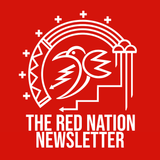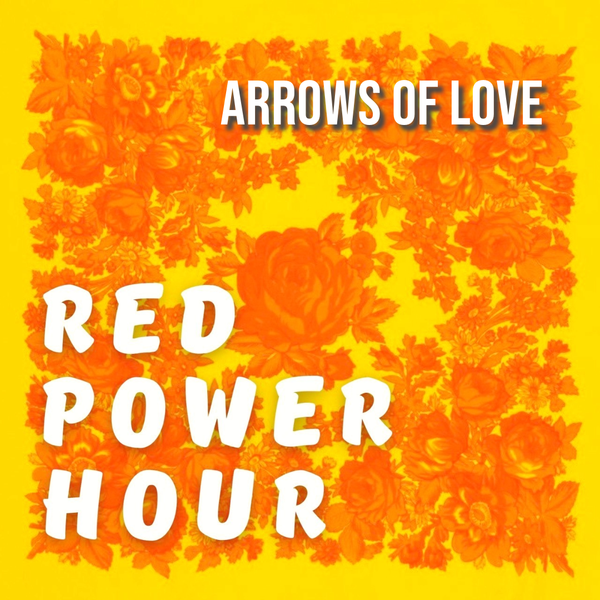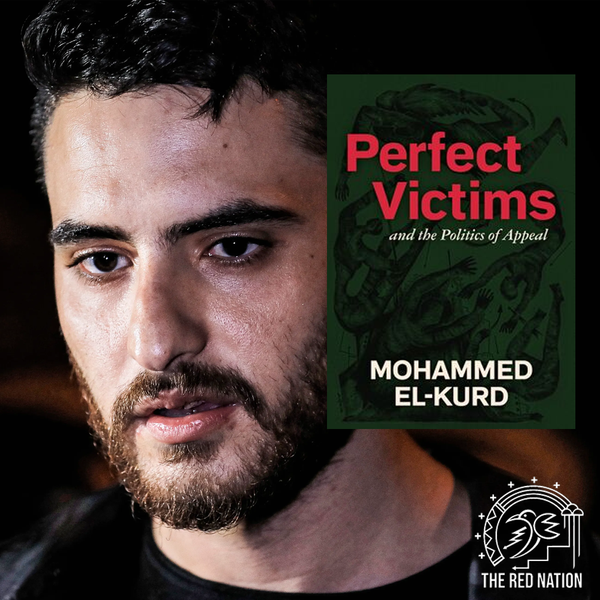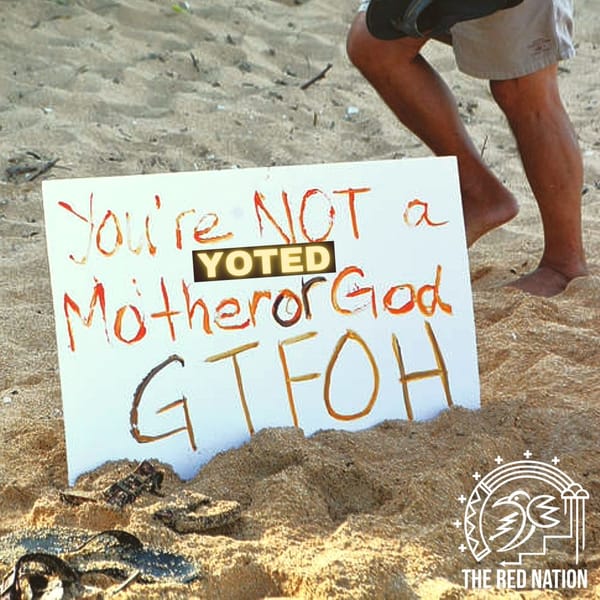Unsheltered Not Homeless
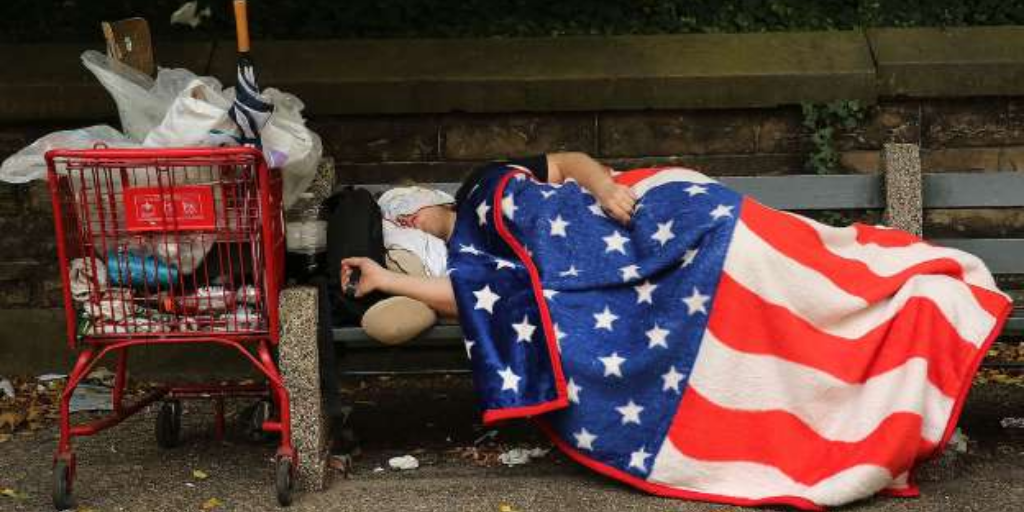
Indigenous peoples cannot be homeless. Stigma associated with the term “homeless” invalidates the relationship Indigenous peoples’ have to their homelands—the foundation of who we are as people. Shaming unsheltered Native people discourages them from sharing their narratives and experiences of displacement, homelessness, trauma, violence, kinship and relocation. Shame is a colonial weapon against kinship because it is much easier to place the blame of hardship on an individual than to challenge the colonizers structures and institutions.
Fact: there are more abandoned buildings than unsheltered people across our homelands. How do communities determine who is disposable? Why is this framed as an individual struggle rather than a collective one? How do you decide who you do and do not extend kinship to? My answers to these questions are based on my own experiences reframing and recreating my understanding of home, kinship and relationship to land as a Diné person.
Kinship
Native communities experience some of the highest rates of homelessness because of forced removal and relocation required by the settler-colonial resource extraction projects that keep capitalism flowing and flourishing. Coal and uranium mining, for example, contaminates our aquifers. Fracking and the commodification of “produced water” also known as fracking water is poison water resold back to our communities. This doesn’t even include the violence required to create “public lands” that are used for national parks systems. All these projects push Indigenous peoples out of their territories and restricts access to sacred sites–further cemented settler control over the stolen land and resources.
I first began using the term “unsheltered” to refer to myself as a Native youth living on the streets when I would share my story and organize with UNM Kiva Club and the Red Nation in Tiwa Territories in 2015. I had lived on the streets as a child with my mom and brother and then for several years as a young person, due to my families’ experiences of displacement and dispossession from the Black Mesa region of the Navajo Nation. I never understood how communities stigmatized house-less people because I was raised valuing K’é, kinship and understanding “K’é does not discriminate” – Radmilla Cody. Kinship is a way of life for Dine’ people, it is the foundation of how we relate to each other and all living beings on Nihimá Nahasdzáán (the earth). I would correct people who called me homeless because I reject the term. I know where my homelands are, and I am not allowed to go back to or visit. This is due to U.S. intervention in Tribal governance around the enforcement of imaginary borders and U.S. imperialism through profits from the extraction of coal. Extraction makes our homelands uninhabitable for families and non-human relatives alike, effectively severing our ancestral ties we have cultivated to the land since time immemorial.
In the late 1970s, my family was displaced then relocated during the Peabody Mine Dispute and Navajo-Hopi Relocation — we are originally from a place referred to as the “Hopi Fence.” The border dividing Dine’ and Hopi lands displaced us and tore our families and communities apart. This is due to pressure from the U.S. government on Tribal Nations to divide communities that have always co-existed. This resulted in the forced removal and theft of resources where individuals and corporations made a profit. This dispute falsely “legitimized” tribal sovereignty through the imposition of colonial borders, bribery and resource extraction. Tribal governments flex this nationhood granted to them by the US state by adopting the settler’s values. If we had actual sovereignty and self-determination, our community’s voices would have been respected long ago and our relatives would not have been extracted and commodified. Tribal Nations are simply an extension of the federal government. The Navajo Nation commodifies our relatives through its participation in extractivism, an affront to our Diné cultural values. Extractivism has been the “birth” of many federally recognized Tribal Nations today, furthering the settler colonial land grab instead of Indigneous Sovereignty and Self-Determination. Systems of capitalism and imperialism that our tribal governments enforce aid the colonizer in displacing their own people.
Our displaced communities have been forgotten and excluded from the revisionist history because forgetting the nasty history around forced relocation and extractivism is better for the corporate bottom line. Decisions made by Tribal governance were made without our consent and have directly impacted us. All the relatives relocated due to resource extraction and capitalism have often been moved into bordertowns which thrive off of Native labor and capital. U.S. colonialism through structures like borders uproots both Diné and Hopi families so that corporations can access the coal underneath them. Thanks to the colonizers, my ancestral homelands are no longer suitable for us to inhabit even if we were allowed to move back. Since we are Indigneous, we are forced into sacrifice zones for the sake of settler profits.
Walls and Borders are not traditional. We are not supposed to fence off our land as Diné people because the land is our relative and therefore cannot be caged into the settler definition of property. Our Diné people and non-human relatives are free to migrate wherever they need. Extraction makes us refugees on our own homelands and does the same to colonized people across the globe, all in the name of profits. I draw connections to the struggle for Palestinian liberation, where Palestinians have become refugees on their own homelands. Our struggle against settler colonialism is one in the same and solidarity with Palestinian people is essential to our liberation. Extractive industries exploit our resources and labor, steal them, contaminate our homelands and communities, and we often see no benefits from these practices. Our communities suffer at the hands of the U.S. empire. We all suffer because the colonizers and imperialists exploit us, then they move to another Indigenous community, or another poor community either inside or outside (and most of the time both) of what is called the United States.
To exist in this system as unsheltered is criminal because your worth under capitalism is equated to your potential as a laborer. Not surprisingly, many of our unsheltered relatives are people in our communities who have slipped through the cracks of the system. Those who have suffered at the hands of capitalism are denied the resources, support or opportunities to work. Lacking a fixed address, I would have never been given a job when I lived on the streets if I hadn’t personally known the wife of a restaurant owner. Without people willing to break settler laws, I would not have been able to get off the streets or into the Children Youth Families Department (CYFD) Housing Voucher, a specific program for foster youth & youth who have been chronically homeless/unsheltered, that helped me transition off the streets into a stable living environment.
My success in becoming stable was almost entirely based on community members’ willingness to help me. The system was never created for people in my situation or in many other people’s situations, it is a dehumanizing and uncaring system that needs to be abolished and replaced. The system actively criminalizes unsheltered people and creates barriers for any opportunity to be self-sufficient or stable. Many of the people I met on the streets were people who were never meant to be supported by a capitalist system including: youth in foster care, Native youth, veterans, folks who are poor, those who have disabilities, mental health challenges, those who struggle with addiction and people without any family support. Capitalist institutions only care about our ability to produce capital, so when we fail to do so, we are shamed, ostracized and left to get things together by ourselves. In my experience, it is the lack of support and safety nets that get us into these positions in the first place. I often would criticize the system more than the experiences with my family. If these structures had ensured my family’s access to housing, food, and support then my family would have been better equipped to handle the never-ending cycles of violence. The term unsheltered does not have one rigid definition or experience, it is an umbrella term for various different struggles and needs regarding the spectrum of housing instability. This spectrum includes folks who are without a literal shelter, at risk of being without shelter such as couch surfing, living out of cars, and living with friends and family. It comes down to people having to navigate spaces they take up that is monitored and temporary. Every person experiencing housing instability has different access to resources and different needs for them to survive but it is important to understand that regardless of where they reside, there is limited or no access to vital living necessities for unsheltered folks on the streets or under a roof. Supporting unsheltered relatives requires long-term support, including mental, emotional, physical and/or financial support.
I have learned from several resources such as the “Six categories of homelessness by the The Australian Bureau of Statistics”, “Homelessness In America” and “Fact Sheet: Types of Homelessness” to shape how I understand homelessness for Indigneous people to be a spectrum. In a settler state that upholds neoliberalism and individualism, many of us may feel the need to label every experience however in a community that is already clouded with so much stigma and stereotypes associated with the term “homeless”, there is room and power in the collective experiences and different shared struggles of housing instability. Settler colonial laws police how much space is taken up and is weaponized against folks who live on the streets or who occupy spaces where they “aren’t” supposed to be. Where are unsheltered relatives supposed to be? What would the world look like if everyone was given a home? How many of our relatives could leave toxic environments where their perpetrators and abusers weaponize housing against them and theirs?
Bordertown Violence
The core reason why the Red Nation formed back in 2015 was to address the rampant bordertown violence and brutalization of Indigenous people on stolen Tiwa-Speaking Pueblo/a/x land. My first Red Nation event was in 2014, I was living on the streets as a minor and went to a rally demanding justice for the violent murders of two Diné men, Allison “Cowboy” Gorman and Kee “Rabbit” Thompson. Recalling the organization’s founding as an Indigenous-led revolutionary movement, the Red Nation’s #NoDeadNatives #NDN campaign was created in 2015 after many unsheltered Native people in bordertowns died from exposure during the cold winter. These deaths were entirely preventable, and we hold the bordertowns responsible for the death of our relatives.

We demand free and accessible housing and care to all people on stolen land. We refuse to stand by while Tribal Nations and bordertowns turn their back on Native people. The Red Nation calls on the community to take action! This campaign is where we organize a call for donations and assist in distributing resources, food and clothing to our unsheltered relatives every winter season. Our organization centers our unsheltered relatives. Our annual #NoThanksNoGiving gathering is open to all relatives and encourages all of our members to embody working-class solidarity. At the beginning of this year, we began hosting monthly Community Feeds. Many of us carrying out this work come from families experiencing hardship and therefore understand the importance of offering a space for our community to stop in for a free delicious meal prior to the coronavirus pandemic.
When the COVID-19 Pandemic began, many Native communities inside and outside of the reservation borders experienced widespread struggles ranging from unemployment to high rates of infection. During the pandemic, over 20 million people lost their jobs across the U.S. The Navajo Nation had the third-highest per capita rate of COVID-19 in the country, after New Jersey and New York. The cases will continue to increased, until there is a vaccine available for everyone in our communities, until capitalism falls, we will always be at a high risk. It should not come as a surprise that so many people who qualify for unemployment are now able to have a living-wage compared to when they were employed. Mutual aid and solidarity feeds have become essential to the wellbeing of our communities during the COVID-19 pandemic due to the widespread struggles of unemployment, housing, financial stability, safety and health. The experiences of poverty and homelessness contribute to high rates of trauma, addiction and instability for Indigenous peoples.
The United States is a settler occupying system that loots all of our wealth from us and Indigenous people from all over the globe then profits off of it by selling it back to us. We never benefit as a community from the stolen wealth they sell back to us. Patrick Wolfe describes settler colonialism as the elimination of the Native so that the colonizer and settler can claim the land and resources. For Native people to live, the United States needs to be abolished. Many Indigenous people across the United States live without access to clean water, electricity, and many other important community necessities. For those of us who live in bordertowns, we experience immense and pervasive Anti-Indianism, racism, sexism, homelessness and extreme violence. A 2014 survey declared that: “75 percent of homeless Native Americans in Albuquerque had been physically assaulted.” In 2020, during the pandemic a Pueblo/a/x elder, on Pueblo/a/x lands that I have collected donations for and have kept in contact with, had shared with me that they never experienced being unsheltered in her entire lifetime and found herself in that position for the first time.
How can one be “homeless” in their homeland? Native unsheltered folks are oftentimes seen by those occupying our homelands as intruders or interlopers. It’s classist and racist to assume that we only belong within the colonial boundaries of reservations. To the contrary, every square inch of the so-called United States is Native Land, and Native people have a right to exist anywhere and everywhere, whether on reservations or in the illegal and occupying settlements which we now call bordertowns, cities and states.
In the view of the Red Nation, it is an obligation to extend kinship, solidarity and compassion to our unsheltered relatives on the streets. We continue to organize mutual aid in response to the pandemic, through our weekly Solidarity Feeds every Sunday, where we distribute Personal Protective Equipment (PPE) and over 200 hot meals to any and all unsheltered & unhoused relatives. For those of us in The Red Nation, it is our obligation as good relatives to extend kinship, care and material support to all our comrades and relatives who experience the brunt of policing and settler colonialism across Native Land, and until every dispossessed and displaced Indigneous person can return back to their homelands, #LandBack will always be necessary and we will continue to show up for each other. We refuse to relinquish our kinship obligations, and will continue to demonstrate support and solidarity to our unsheltered and unhoused relatives. We know this system is settler colonial in nature and by definition, it was created to uphold land and resource theft. For these reasons we offer solidarity to our people who are left to deal with these institutions and systems that seek to bury us in the past. We can’t be uprooted; we will continue to resist until we get our relatives what they need to thrive.
This is why we choose to use the word unsheltered. Language is important, there’s power in the way we choose to speak about these structures and name the oppression we experience and where it comes from. Shimasani, my grandma Anita/Nonni raised me with the phrase “your tongue is like a weapon and can kill so be considerate about how you speak.” We can choose to tear down our people by using words that place the blame on them or defend and uplift our people by placing the blame on the very structures and systems that harm them in the first place. All non-Indigenous peoples benefit from the displacement, dispossession, theft and commodification of our relatives: land, nonhuman relatives, and our families.
Landback is not just a slogan; it’s a movement that at its core believes no one will be free until Native people and Native land are free. Native people cannot be truly homeless because we belong to the land. We live without or with temporary shelter, which is not stable or safe at all times which is why I choose to use the word unsheltered. Part of our liberation will come from reframing how we talk about our experiences and what structures are responsible for our genocide and displacement. We have always saved ourselves, and Solidarity is absolutely necessary for our people to live.
How to Extend Solidarity
You can give monetary donations towards our Solidarity feeds through Paypal by sending your donations to Abqtrntreasurer@gmail.com with the message #SolidarityFeeds. We are also accepting donations for the #NoDeadNatives Campaign until February 2020 of waterproof backpacks, beanies, gloves, thermals (shirt/pants sets/blankets), socks, scarves, tarps, tents, sleeping bags and coats. We request that these donations be NEW or close to new items. Donations can be brought to The Red Nation Office on Fridays & Saturdays from 12-4pm at 1421 Central Ave NE on January 8st 2021and in the following weeks. We request that you leave them outside and knock on the window before leaving.
Ahe’hee, Thank you.

